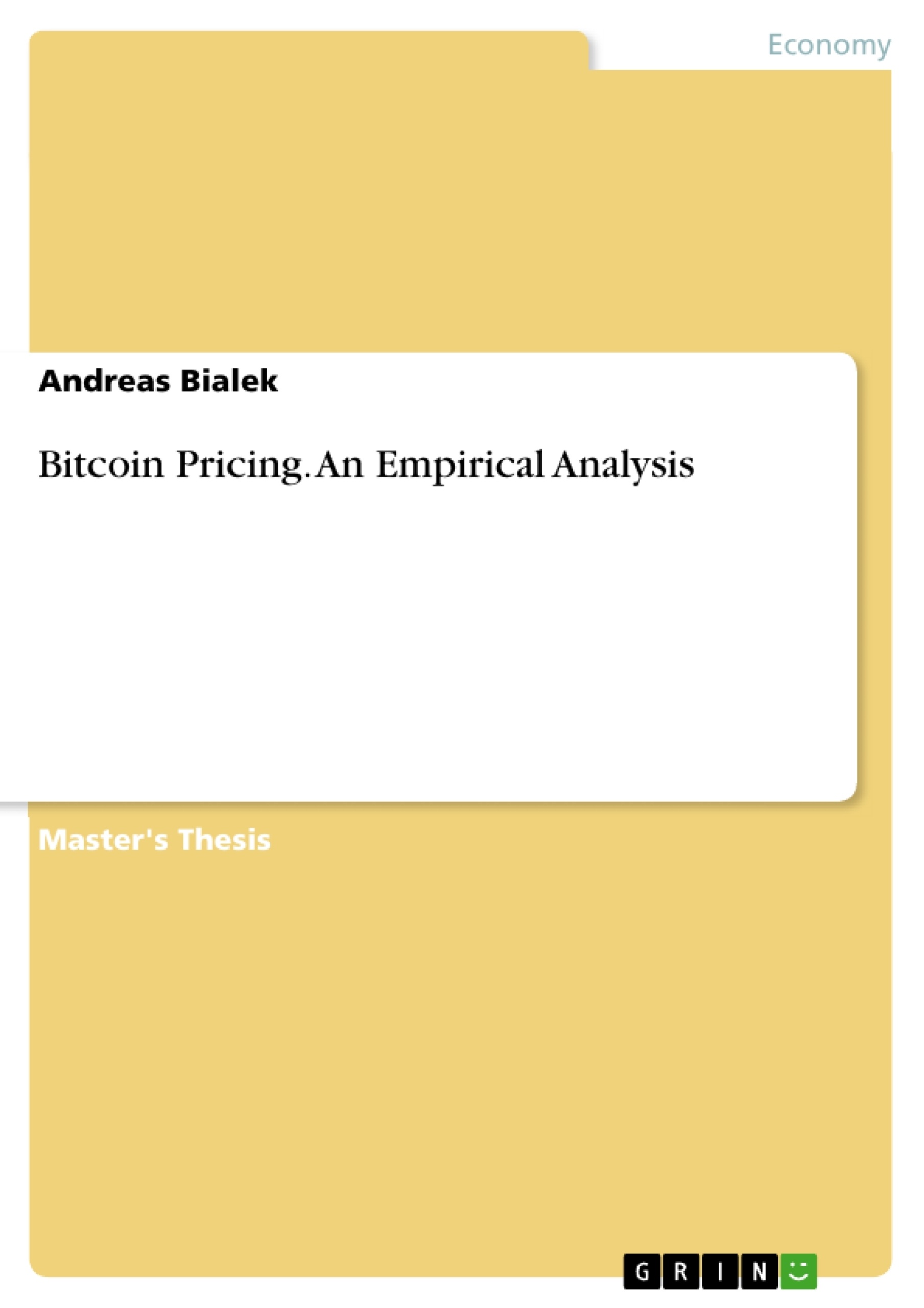In this paper, I analyze the relation between daily bitcoin returns and sentiment, using a dataset reaching from 2013 to 2018. I find that daily bitcoin returns are not only affected contemporaneous by the bitcoin-sentiment measures, but also in the next three days - while established stock-market sentiment measures provide no explanatory power.
Additionally, the negative emotions show return-reversal patterns as often observed in sentiment-induced mispricing literature, resulting in higher returns the next two days, after affecting returns negatively today. I further find that trading volume affects re-turns positively today, in the next four days, and that it is connected with stock-market measures. For what I wisdom, this is also the first academic research that uses the recently introduced Thomson Reuters MarketPsych Indices on cryptocurrencies.
Inhaltsverzeichnis (Table of Contents)
- I. Introduction
- II. Stock Sentiment Literature
- III. Data and Methodology
- A. Bitcoin Framework
- A.1. Bitcoin Sentiment Literature
- A. Thomson Reuters MarketPsych Indices
- A.1. Constructing Sentiment Measures
- A.2. Measures
- IV. Empirical Results
- A. Bitcoin Sentiment Measures and Future Returns
- B. Drivers of Bitcoin Tradevolume
- V. Conclusions
Zielsetzung und Themenschwerpunkte (Objectives and Key Themes)
This thesis analyzes the relationship between daily Bitcoin returns and sentiment, using a dataset spanning from 2013 to 2018. The goal is to understand the impact of sentiment on Bitcoin prices and investigate the drivers of Bitcoin trading volume.
- The influence of Bitcoin sentiment on returns.
- The effect of negative emotions on return reversal patterns.
- The impact of trading volume on Bitcoin returns.
- The relationship between Bitcoin trading volume and stock market measures.
- The application of Thomson Reuters MarketPsych Indices in the analysis of cryptocurrencies.
Zusammenfassung der Kapitel (Chapter Summaries)
- Introduction: This chapter provides an overview of Bitcoin and its potential disruption of financial mechanisms. It discusses Bitcoin's market capitalization and price fluctuations, highlighting the importance of investor sentiment in its pricing.
- Stock Sentiment Literature: This chapter reviews the existing literature on stock sentiment, providing a theoretical framework for understanding the influence of sentiment on asset prices.
- Data and Methodology: This chapter introduces the dataset and methodology used in the analysis. It focuses on the Thomson Reuters MarketPsych Indices (TRMI) for measuring Bitcoin sentiment, outlining their construction and specific measures.
- Empirical Results: This chapter presents the findings of the empirical analysis. It explores the relationship between Bitcoin sentiment measures and future returns, investigates the drivers of Bitcoin trading volume, and analyzes the connection between trading volume and stock market measures.
Schlüsselwörter (Keywords)
The main keywords and focus topics of this thesis include Bitcoin, returns, reversal, sentiment, Thomson Reuters MarketPsych Indices (TRMI), and trading volume. The research delves into the impact of sentiment on Bitcoin price dynamics and explores the drivers of Bitcoin trading activity.
Frequently Asked Questions
What is the main focus of this Bitcoin pricing analysis?
The paper analyzes the relationship between daily Bitcoin returns and investor sentiment using data from 2013 to 2018.
How does sentiment affect Bitcoin returns?
Daily returns are affected by sentiment not only on the same day but also over the following three days. Negative emotions often lead to return-reversal patterns.
What are Thomson Reuters MarketPsych Indices (TRMI)?
TRMI are indices used to measure psychological factors and sentiment in financial markets, applied here for the first time in academic research on cryptocurrencies.
What role does trading volume play in Bitcoin pricing?
Trading volume has a positive effect on returns on the current day and the following four days, and it is closely connected with broader stock-market measures.
Do stock-market sentiment measures explain Bitcoin prices?
According to the study, established stock-market sentiment measures provide no significant explanatory power for Bitcoin returns, whereas Bitcoin-specific sentiment does.
- Arbeit zitieren
- Andreas Bialek (Autor:in), 2018, Bitcoin Pricing. An Empirical Analysis, München, GRIN Verlag, https://www.grin.com/document/459668



